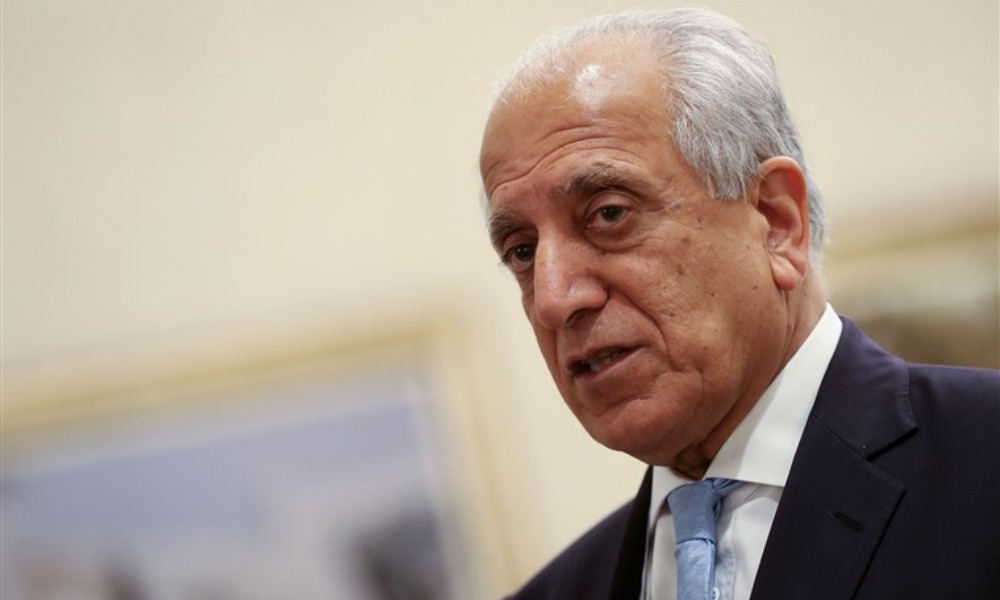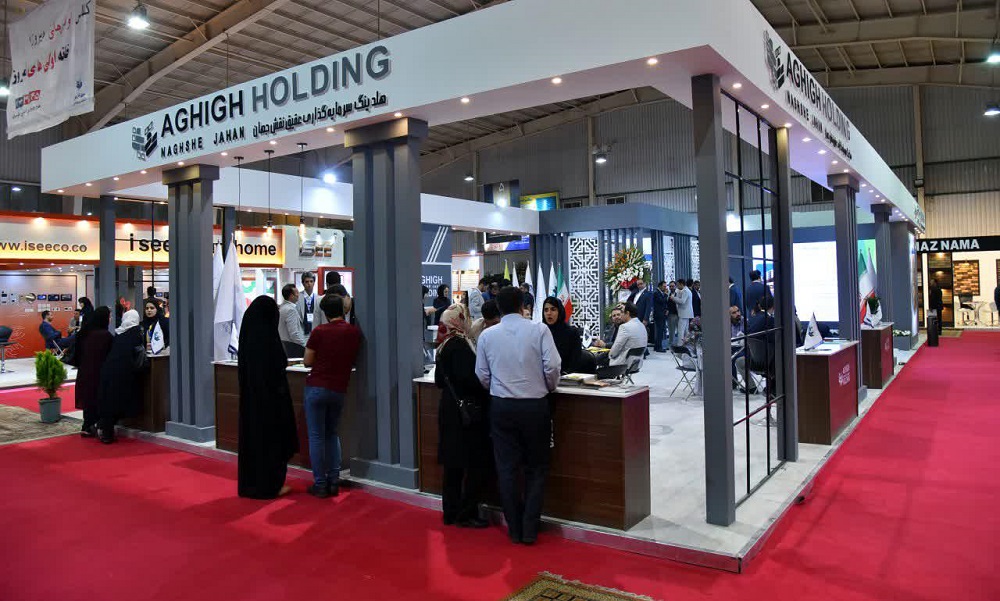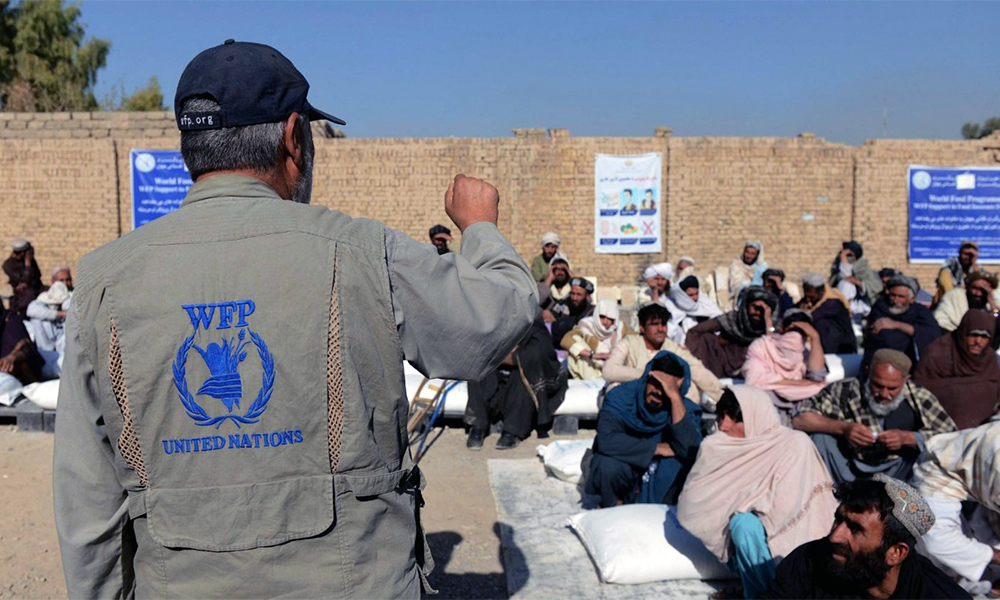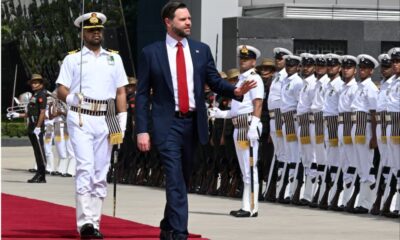Latest News
Biden ‘ignored advice’ on US troops withdrawal from Afghanistan: Khalilzad

US President Joe Biden ignored the counsel of senior US diplomats, including Secretary of State Antony Blinken, who urged him not to pull US troops out of Afghanistan without certain conditions in place, former Special Representative for Afghanistan Reconciliation Zalmay Khalilzad told the House Committee on Foreign Affairs in a transcribed interview released Wednesday.
Khalilzad — who helped negotiate the Doha agreement that led to the complete withdrawal of troops – testified that Biden could have stopped or altered the plan to remove all US forces from Afghanistan by September 2021.
“The State Department — or the secretary and myself, we wanted a conditional withdrawal approach,” he said. “But the ultimate decision was, as we all know, that it was to withdraw based on a timetable.”
Khalilzad said he recommended that the Islamic Emirate and the Afghanistan government at the time reach a separate peace agreement before US troops left the country.
“Secretary Blinken and I, I believe, did recommend that conditionality. That’s my judgment, that conditionality would be the prudent thing to do,” Kalilzad told the committee in his Nov. 8 interview. “But then the response was, ‘Can you get the other side – the Talibs (Islamic Emirate) – not to go back to fighting?”
In his testimony, Khalilzad said such an agreement could have been based on an early 2021 peace negotiation that Khalilzad said visualized a “peace government,” which would have given the Islamic Emirate an equal share of power over Kabul with the then Western-backed Afghan government.
“It was essentially kind of a power-sharing formula that our experts had put together in consultation with outside experts in which the government consists of individuals with ties to both – from the Afghan Government and the Taliban – and be led by somebody acceptable to both sides,” he told the committee.
He said that when reaching such a conditional agreement appeared unlikely, Biden instead decided to move forward with the pullout to avoid IEA attacks on US forces.
Khalilzad said the sudden lack of US support helped enable the Islamic Emirate to retake power, 15 days before the last American service member left the capital.
Khalilzad also told lawmakers that State Department officials had predicted the power-sharing initiative would not have lasted longer than three years without a continued US presence in the country.
He also said at points throughout negotiations with the Islamic Emirate, there were times he believed that the IEA “negotiated merely as a stall tactic to wait out the U.S. until its military forces withdrew to zero.”
Khalilzad believed Biden’s announcement in April 2021 to withdraw all U.S troops negatively affected the morale of the Afghan government forces. He explained that: “The U.S. withdrawal had a psychological impact and negatively affected the relative balance of power for the government. That’s obvious.”
Latest News
Afghan delegation to participate in Iran’s international expo

Iranian officials have announced that a 200-member delegation, comprising Afghan government officials and private sector representatives, will attend the 7th International Exhibition of Iran’s Export Capabilities.
Officials from the Islamic Emirate, meanwhile, consider the presence of Afghan traders at this exhibition to be significant, stating that showcasing domestic products will help promote and market Afghan goods.
Abdul Latif Nazari, Deputy Minister of Economy, said: “Economic cooperation between the private and public sectors of Afghanistan and Iran is in the interest of both countries.”
“The visit of the high-ranking delegation of the Islamic Emirate to Iran can play a vital role in expanding economic and trade exchanges between the two countries,” he added.
In addition, Afghanistan Chamber of Commerce and Investment (ACCI) said that 80 booths have been allocated to Afghan traders at the exhibition, where agricultural products, precious stones, and other Afghan goods will be showcased.
Several experts also stated that Afghanistan’s participation in regional and international exhibitions is important and can lead to stronger economic ties with other countries.
This comes as Iran remains one of Afghanistan’s key economic partners, with annual trade volume between the two nations exceeding $3 billion.
Latest News
14 kms of TAPI pipeline laid inside Afghanistan, says project manager

Baganch Abdullayev, the General Director of the TAPI project in Afghanistan, on Thursday met with Noor Ahmad Islamjar, the governor of Herat, for a report back on progress made in accelerating the pipeline-laying process of the Turkmenistan-Afghanistan-Pakistan-India project in the province.
The Herat governor’s press office said in a statement that Abdullayev shared a brief report on the progress of the TAPI project with Islamjar.
According to the statement, Abdullayev said so far 14 kms of pipeline has been laid while an additional 24 kms of ground has been levelled for the pipeline.
During the meeting, the governor of Herat also welcomed the efforts of TAPI project officials in advancing the work and assured the project head of the local administration’s full support in facilitating the swift progress of the project.
Once completed, TAPI pipeline will transport natural gas from the Galkynysh Gas Field in Turkmenistan through Afghanistan into Pakistan and then to India.
The pipeline was completed on the Turkmenistan side in 2024, and the project is currently expanding southbound in Herat Province of Afghanistan.
Latest News
WFP appeals for $25 million to help support Afghan returnees amid humanitarian crisis

The World Food Programme (WFP) this week issued an urgent appeal for $25 million to address the escalating needs of Afghan refugees being expelled from Pakistan.
According to the WFP, thousands of Afghan families are crossing into Afghanistan from Pakistan every day and face serious food insecurity.
The organization also stated that millions in Afghanistan are grappling with severe hunger, and immediate aid of $25 million is needed to assist returnees.
On Wednesday, April 23, in a video shared on X, WFP’s head in Afghanistan, Mutinta Chimuka, visited the Torkham border crossing with Pakistan. During her visit, she highlighted the challenges faced by returnees, many of whom have spent their entire lives in Pakistan and are unfamiliar with Afghanistan.
Chimuka pointed out that many returnees have no income, employment, food, or shelter.
The WFP stressed that thousands of families are being forced to leave Pakistan, while 15 million people in Afghanistan are uncertain where their next meal will come from. The situation has become dire, with basic needs going unmet for a large portion of the population, the WFP said.
Chimuka warned that current aid efforts are insufficient to support the returnees, and new financial resources are urgently needed to address their needs by the end of the year.
Meanwhile, the pace of deportations and expulsions of Afghan migrants from neighboring countries, particularly Pakistan, continues to increase. The Pakistani Ministry of Interior reported that over 100,000 Afghan migrants have been returned since April 1.
The International Committee of the Red Cross (ICRC) has also raised alarm, noting that while thousands of refugees return every week, there are millions of Afghans who are currently facing poverty, homelessness, and difficult living conditions.
-

 World5 days ago
World5 days agoThousands of protesters rally against Trump across US
-

 Latest News4 days ago
Latest News4 days agoPolio vaccination campaign launched in Afghanistan
-

 International Sports2 days ago
International Sports2 days agoIPL 2025: Robo-Dog ‘Champak’ explained
-

 International Sports4 days ago
International Sports4 days agoIPL 2025: 14-year-old Vaibhav Suryavanshi becomes youngest IPL player
-

 Latest News3 days ago
Latest News3 days agoAriana Afghan Airlines increases flights to China
-

 Latest News3 days ago
Latest News3 days agoChina invites various Afghan delegations to attend Shanghai forums
-

 World3 days ago
World3 days agoPentagon chief Hegseth shared sensitive Yemen war plans in second Signal chat, source says
-

 Regional4 days ago
Regional4 days agoJD Vance arrives in India, to hold talks with Modi under US tariffs shadow
























